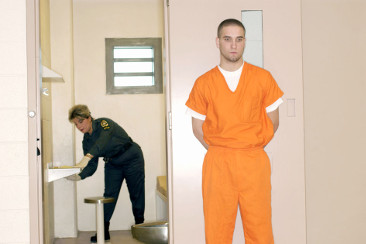|
|
| What the Hell is in that Cell? |
| By Joe Bouchard |
| Published: 08/08/2016 |
 Pardon the following light profanity. Many of us in corrections ask “What the hell is in that cell?” Whether the location in question is a cell, dormitory, kitchen, library, or laundry room, the searcher seeks the same thing. That thing is safety.
Pardon the following light profanity. Many of us in corrections ask “What the hell is in that cell?” Whether the location in question is a cell, dormitory, kitchen, library, or laundry room, the searcher seeks the same thing. That thing is safety.
I believe that corrections is a team sport. It runs best when all classifications of employees assist in safety functions. Therefore, everyone should participate in the search for contraband in whatever way possible. Certainly, one needs to look at the division of labor and consider policy and procedure. Non-custody staff can aid in the search by monitoring the activities of offenders and report unusual occurrences to custody staff. So, support and administrative staff should ask “What the hell is in that cell?” It is not solely for custody staff to ponder what may be hidden. In the course of increasing safety for staff, offenders, and the public, we assess the scene before we search for contraband, the omnipresent danger in all corrections facilities. When there is time, it behooves us to ask ourselves some or all of the following questions:
Why do we occasionally need to think of so many things prior to executing a search? In a way, it is like knowing about the entire iceberg. We see only about the tip of the iceberg, but there is so much more. Consider the immense and unseen part of it underneath the water. In addition, it is important to assess the surrounding waters. Nothing exists in a vacuum. This is particularly true in a correctional facility. What you find in the search may be related to some other contraband enterprise in the facility. And by reviewing these questions, your search may become more focused and successful, enabling you to increase safety for staff, offenders, and the public. Joe Bouchard is a Librarian employed with the Michigan Department of Corrections and a collaborator with The International Association of Correctional Training Personnel (IACTP). He is also the author of “IACTP’s Corrections Icebreakers: The Bouchard 101, 2014”. The installments in this series include his opinions. The agency for which he works is not in any way responsible for the content or accuracy of this material, and the views are those of the contributor and not necessarily those of the agency. While some material is influenced by other works, all of the icebreakers have been developed by Joe Bouchard. Visit the Joe Bouchard page Other articles by Bouchard: |
Comments:
Login to let us know what you think
MARKETPLACE search vendors | advanced search

IN CASE YOU MISSED IT
|


We all happy about these new corrections for the other workers and its been developed. The bouchard page has included with these reports to buy assignment articles and essay reviews. So, I prefer to know the importance of basic assignment services.